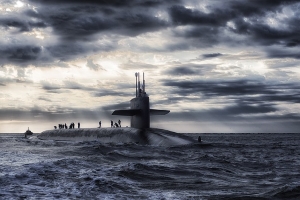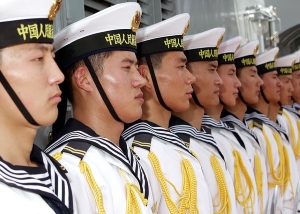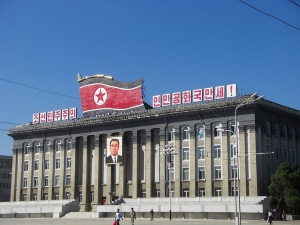
by nsiteamadmin | Aug 4, 2023 | 2023, All Publications, AUTHOR, Communications, Deterrence, DOMAIN, Lieber, K., METHODOLOGY, NORTH AMERICA, Nuclear, Press, D., REGION, SMA Speaker Series, SPEAKER SERIES, STRATCOM, USA, YEAR
Speakers: Dr. Keir Lieber (Georgetown University); Dr. Daryl Press (Dartmouth College) Date: 6 September 2023 Speaker Session Summary US nuclear deterrence has changed drastically during the last few decades. One of the factors forcing the US to change its nuclear...

by nsiteamadmin | Jul 26, 2023 | 2023, All Publications, ASIA, Communications, Dolzikova, D., DOMAIN, EUCOM, Geopolitics, METHODOLOGY, NORTH AMERICA, Nuclear, REGION, Russia, SMA Speaker Series, SPEAKER SERIES, STRATCOM, USA, YEAR
Speaker: Ms. Darya Dolzikova (RUSI) Date: 1 August 2023 Speaker Session Summary The war in Ukraine is raising questions about the security of Ukraine’s nuclear power plants and the safety of civilians who are in their proximity. Military and civilian leaders in other...

by nsiteamadmin | Jun 16, 2023 | 2023, All Publications, ASIA, China, Communications, Deterrence, DOMAIN, Future Global Comp, METHODOLOGY, Nuclear, REGION, Roberts, B., SMA Speaker Series, STRATCOM, YEAR
Speaker: Dr. Brad Roberts (LLNL) Date: 21 June 2023 Speaker Session Summary SMA hosted a speaker session with Dr. Brad Roberts (Center for Global Security, LLNL) as part of its SMA STRATCOM Speaker Series. The deterrence landscape has changed...

by nsiteamadmin | Jun 16, 2023 | 2023, All Publications, ASIA, AUTHOR, Communications, Deterrence, DOMAIN, Herd, G., METHODOLOGY, NORTH AMERICA, Nuclear, REGION, Russia, SMA Speaker Series, SPEAKER SERIES, STRATCOM, USA, YEAR
Speaker: Dr. Graeme Herd (George C. Marshall European Center for Security Studies) Date: 22 June 2023 Speaker Session Summary SMA hosted a speaker session with Dr. Graeme Herd (George C. Marshall European Center for Security Studies) as part of its SMA...

by nsiteamadmin | Jun 2, 2023 | 2023, All Publications, Anderson, J., ASIA, AUTHOR, China, Communications, Deterrence, DOMAIN, Geopolitics, METHODOLOGY, NORTH AMERICA, North Korea, Nuclear, REGION, SMA Speaker Series, SPEAKER SERIES, Stability, STRATCOM, USA, YEAR
Speaker: Dr. Justin Anderson (NDU) Date: 8 June 2023 Speaker Session Summary Despite the deep freeze in US-China relations, the US and China have mutual interests that could reduce risk in a future DPRK regime collapse scenario. The US and China have prior experience...

by nsiteamadmin | May 22, 2023 | 2023, Adamsky, D., ASIA, Communications, Deterrence, Nuclear, Russia, SMA Speaker Series, Socio-cultural, STRATCOM
Speaker: Prof. Dmitry Adamsky (Reichman University) Date: 19 July 2023 Speaker Session Summary The Kremlin is blending its nuclear discourse, politics, and theological beliefs, changing the domestic perception in Russia regarding just nuclear war and nuclear...








